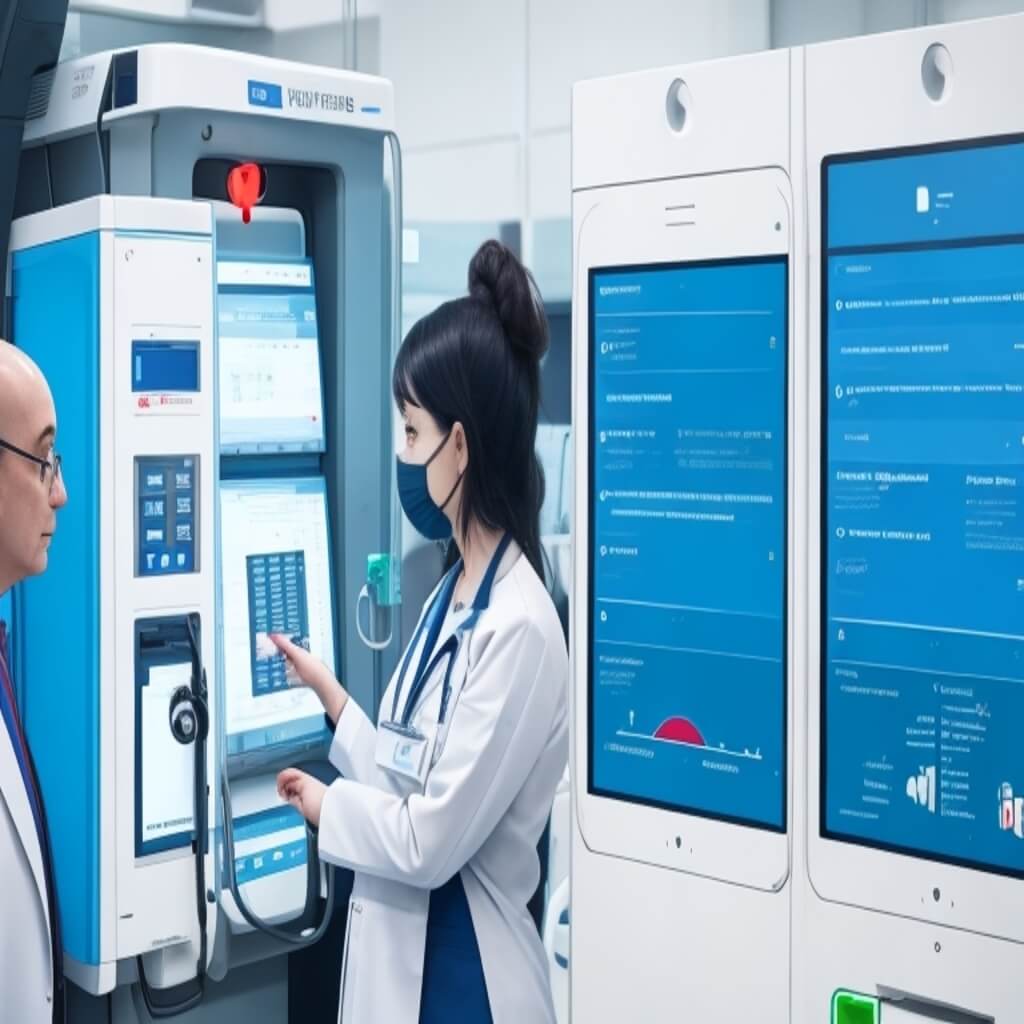As the National Health Service (NHS) in the United Kingdom gears up for the challenging winter season, it is embracing artificial intelligence (AI) to revolutionize patient care. AI is employed to identify patients at risk of hospitalization, enabling community NHS teams to intervene proactively and alleviate the strain on Accident and Emergency (A&E) departments.
AI-powered early intervention in Somerset
In Somerset, four GP practices are at the forefront of this healthcare transformation, trialing an AI system designed to identify registered patients with complex health needs at risk of hospital admission. Additionally, it targets those who infrequently contact their general practitioner (GP). The AI system, which forms the core of this initiative, detects these high-risk individuals and initiates outreach efforts. Health coaches, nurses, or GPs then converse with these patients to address their health concerns and take preventive measures.
A range of preventive care interventions is offered for those most at risk. These interventions can include providing vulnerable patients with food parcels, connecting them with specialist doctors, implementing support to prevent falls, or linking them with local voluntary groups to combat loneliness. This proactive approach improves patients’ health outcomes and eases the burden on hospitals by minimizing unnecessary admissions.
Monitoring dietary habits with AI in Buckinghamshire
Meanwhile, in Buckinghamshire, the NHS employs AI linked to electronic sensors installed on kettles and fridges. These sensors are designed to detect changes in patients’ eating and drinking habits. When anomalies are detected, the system alerts a non-clinical Onward Care team, who promptly engages with patients. This team resolves 95% of the issues they encounter or escalates them to clinical professionals when necessary.
Patients can benefit from these practical local measures extending beyond monitoring dietary habits. Services such as cleaning, shopping assistance, and food parcel deliveries are also offered. By addressing these aspects of patient well-being, frail individuals can avoid hospital readmissions, enhancing their quality of life and reducing the strain on healthcare resources.
Predictive algorithms for targeted interventions in Birmingham
In Birmingham, NHS teams are piloting an innovative approach that utilizes predictive algorithms to identify the top 5% of patients at risk of potential hospital attendance or admissions. Staff members are then deployed to provide social care assessments, medication reviews, or other social prescribing measures to prevent A&E admissions.
Over the next two years, this scheme aims to prevent unnecessary A&E attendances and overnight hospital stays and free up GP appointments. By proactively addressing high-risk patients’ needs, the NHS strives to ensure that individuals receive the appropriate care, reducing the burden on A&E departments and other healthcare facilities.
Meeting the challenges of winter
These AI-driven innovations come at a critical juncture as the NHS faces immense pressure in winter. Recent data underscores the challenges the healthcare system is confronting, with October registering as the busiest month on record for A&E departments and ambulance services experiencing unprecedented demand.
To address these challenges, the NHS has diligently prepared for winter, implementing measures to bolster capacity and resilience across the healthcare landscape. These measures include establishing care ‘traffic control’ centers to expedite discharges, extending ambulance hours, and creating additional beds.
Furthermore, the NHS has been expanding its virtual ward program, intending to roll out 10,000 virtual ward beds by the end of September. This initiative enables patients to receive hospital-level care from the comfort of their own homes, closer to their family, friends, and caregivers.
A commitment to innovation
Amanda Pritchard, the NHS chief executive, emphasized the commitment of healthcare professionals to innovation, harnessing the latest technology and AI to improve patient care and minimize avoidable A&E attendances. By identifying high-risk and vulnerable patients and addressing the broader health issues affecting them, healthcare teams can intervene early and prevent unnecessary hospital visits.
These AI-driven solutions not only benefit patients by allowing them to receive care in the comfort of their homes but also support the NHS during the anticipated challenges of the winter season. With more call handlers and additional beds, these innovations add valuable tools to the NHS’s winter toolkit, enhancing its ability to meet the growing healthcare demands effectively.
AI is playing a pivotal role in transforming healthcare in the NHS, particularly in the context of preventing avoidable hospital admissions. These innovative approaches, spanning early intervention, monitoring, and predictive algorithms, are poised to make a significant impact on patient outcomes and the overall efficiency of the healthcare system, especially during the challenging winter months.





